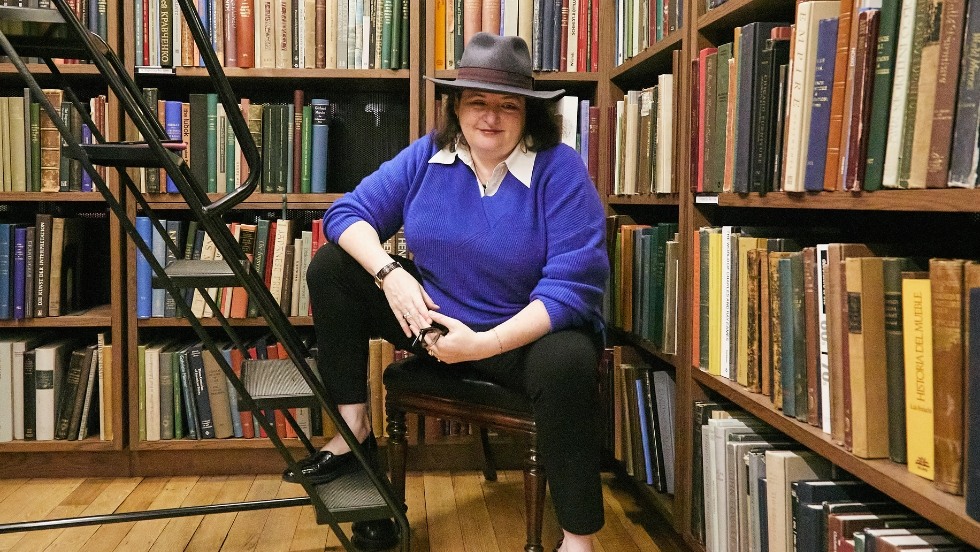Imagine living without sight. In this alumni spotlight, Selina Mills B.A. '93 tells the personal story of how her education at Brown fostered her ability, and desire, to report on the history of blindness.
"I graduated from Brown in 1993 and because of my 19th century history classes I became obsessed with Edith Wharton and Henry James. I harbored the idea of writing a book about the next generation of Grand Tours, so I trained as a teacher of English and headed to Rome.
Writing, as most writers know, did not come easily. A six month stay turned into five years, and after eating way too much pasta, teaching Italian journalists, and learning Latin with a Vatican priest, I became a journalist myself after meeting an editor who offered me an internship. I ended up being a junior reporter at Reuters, and covered everything from popes, politics, and prostitutes often in the same day. It was thrilling and sweltering hot. I even sat at the desk where Ian Flemming (author of the James Bond novels) sat, and met Pope John-Paul II.
During my time in Rome, however, I noticed my sight was becoming blurry and upon a trip home to London, I found a top eye specialist. A large growth at the back of my eye was found, and the possibility of operating was considered 'too dangerous.' I would have to live with declining vision, and that was that. I returned to the UK, and did an Mphil (masters) degree at Cambridge University on the role of the city in the novels of Henry James. I enjoyed academia, but I preferred the freedom of journalism and meeting new people every day.
So I moved back to my hometown of London and became a staff reporter at the Daily Telegraph. As my sight worsened, I shifted to producing radio programs for the BBC. By my late-thirties, I began to lose significantly more sight, and had to adapt my working and home life accordingly. But because I was now using a white cane, and wearing dark glasses, (I am now legally blind) I also noticed how differently people treated me, simply because I used a white cane.
Some people sighed with pity — others presumed I had extra special hearing and touch. I began to take an interest in writing about how disability is understood and interpreted. In 2013, I collaborated on a radio version of the history of disability, BBC Radio 4 - Disability: A New History, which has been repeatedly broadcast around the world. It was good to give disabled people a platform which we owned.
As I began researching the history of blindness, I also wanted to find out about other blind women who were stranded in the corridors of history. Many were there, but simply not noticed. My training at Brown gave me such a useful template – particularly from my semiotic courses (who knew Derrida wrote about blindness?) and to always think outside and around the box. I think Brown really gave me the courage to hear your own inner voice, even when others are telling you your subject matter is 'eccentric and boutique' — which quite a few publishers did.
While I was searching for a publisher, I used my newfound knowledge in different ways. In 2018, I conceived and co-wrote (with composer Errollyn Wallen and writer Nicola Werenovska) the chamber opera, The Paradis Files about the 18th century composer and singer, Maria Theresia Von Paradis. With the backing of a disabled theatre group, Graeae, we premiered at London’s South Bank in April 2022 and then went on tour around the U.K. It was wonderful to see disabled performers given Centre stage in an opera that was accessible to everyone.
By 2019, I finally moved into writing non-fiction and History and was awarded the Royal Society of Literature Jerwood Prize for first time non-fiction writers. Finally all of these threads came together and culminated in the publishing of my historical memoir Life Unseen: A Story of Blindness, which uses historical research over the ages to explain how we interpret blindness in the 21st century. I also wanted to write the book so blind people could own our history ourselves. Interestingly, during my explorations, I found that Sameul Gridley Howe, who graduated from Brown in 1821, was the master of Perkins Blind School in Massachusetts, where Helen Keller trained before she went to Harvard. It's all connected in the end.
It’s been a long long journey but I found my way, and in retrospect, it all makes sense now."
In 2022 Selina Mills was listed as one of the top 100 disabled people in Britain, organized by the Shaw Power 100 disabled list. Selina Mills - Shaw Trust Disability Power 100
